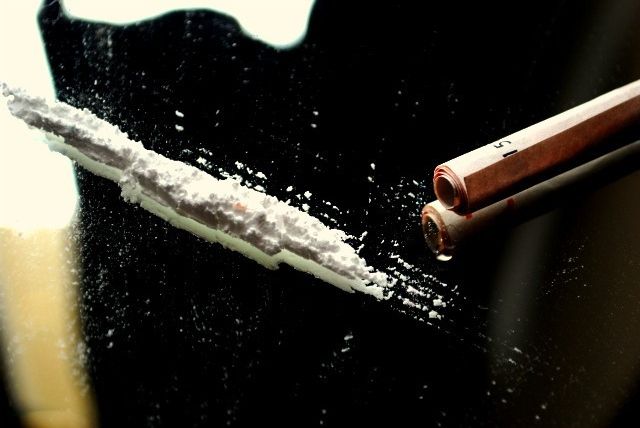Each week, we ask experts, and our readers, to come up with answers to the questions dominating the headlines.
This week, parliament's notorious inertia on drug policy reform showed some signs of lifting. On Thursday, a Home Office report found no conclusive evidence of a link between criminalising drugs and discouraging their use. On the same day, the Commons voted for a full impact assessment and cost-benefit analysis of the 1971 Misuse of Drugs Act. Speaking at the debate, Liberal Democrat Home Officer Minister Norman Baker said: "the genie is out of the bottle and it will not be going back in.”
This week's Big Question is edited by Josh Lowe and Serena Kutchinsky
This week, parliament's notorious inertia on drug policy reform showed some signs of lifting. On Thursday, a Home Office report found no conclusive evidence of a link between criminalising drugs and discouraging their use. On the same day, the Commons voted for a full impact assessment and cost-benefit analysis of the 1971 Misuse of Drugs Act. Speaking at the debate, Liberal Democrat Home Officer Minister Norman Baker said: "the genie is out of the bottle and it will not be going back in.”
Change our speech
We need to change the way we talk about drugs. Much of the rhetoric revolves around crime and punishment. That won’t help the thousands of non-violent drug users that are needlessly criminalized and stigmatized for possession. Let’s treat drug addiction as a health issue. People with drug problems need compassion and treatment, not prison time and marginalisation. Let’s also bring regulation and control into a market that has been handed over to organized crime, at massive cost to communities and societies. Prohibition didn’t work for alcohol, it isn’t working for other drugs. It’s time for new, evidence-based policies. Richard Branson, founder of Virgin GroupLaunch a royal commission
Our approach to drug policy, initiated by the 1971 Misuse of Drugs Act, coincident with Nixon's "war on drugs," has never been subjected to the scrutiny it deserves. 73 per cent of our population now accept policy isn't working and the US experience has proved a calamity. We now need a royal commission to take advantage of the changed public mood to analyse and recommend the necessary policy prescription. It will have to work out how to override the shibboleth of broad prohibition. For too long it has been thought politically expedient to avoid addressing our fundamental approach. But with ex-presidents, experts and increasingly the public leaning towards a regulated, licensed and taxed system rather than prohibition now may be the moment the UK's centre of gravity shifts towards a more intelligent policy on drugs. Crispin Blunt, Conservative MP and former Justice MinisterPay attention to evidence
Behind the controversy is consensus; everyone wants suffering caused by drugs to be minimised. So with the values, resources and evidence we have, evidence such as the new Home Office study, how can a government optimise policy? A single practical question–"What steps will reduce harm?"—should guide politicians as they craft their offers to voters. With prisons and hospitals overstretched, the electorate must demand evidence supporting the claims and proposals of policymakers, and hold them to account. Otherwise, public funds for reducing drug harms are co-opted as an opportunity for politicians to strut their toughness against drug users, expensively compounding the suffering and disadvantage of users and their families. David Nutt, chair of Drugscience and former government advisor on drugs policyLegal highs are a risk
In our experience, people who don't know much about drugs tend to reach for simple answers. Policies are judged on what "message" governments "are sending to young people." There is an implication here that young people are not smart enough to work it out for themselves. Fixing drug policy should start with having faith in our young people as sensible, rational and able to make choices based on risk. Then the important bit is to actually give them independent, credible information on substances, particularly legal highs. They will soon see them as a threat to their well-being and a risk not worth taking. Maryon Stewart, founder of legal highs campaign group the Angelus FoundationLabour need a push
The Labour Party is the key to drug reform. The Tories won’t move on it because it‘s seen as divisive, but for Labour the only problem is risk aversion and a general fear of taking a policy position. If we are going to see change it will most likely be from a Labour/Liberal Democrat coalition, if that happens next year. The significance of the new report is that for the first time the Home Office has admitted that toughness doesn’t correlate with effectiveness. It also admits that a decriminalised, health-based approach can be more effective. It is undermined by Number 10 slamming the door on any policy reform, but that can change if cross party support for evidence predominates. Money spent on prohibition is so counter productive that we’d be better off literally burning it. It’s simply a matter of shifting the paradigm from one of prohibition to one of government regulation and control. Danny Kushlick, founder of the think tank Transform Drug Policy FoundationThis week's Big Question is edited by Josh Lowe and Serena Kutchinsky
Reader responses
@prospect_uk The most important step is to remove elected officials from the discussion.
— Irony's Bitch (@IAmIronysBitch) October 31, 2014
@prospect_uk Remember David Nutt? Surely a decriminalisation of the popular 'party drugs' a sensible first step? http://t.co/UyfLtDald1
— Paul Bicknell (@TallBiggles) October 31, 2014
. @prospect_uk in the absence of effective communities we need to regulate drug use via bureaucracy. Prohibition does more harm than good.
— Corin Ashwell (@corin_ja) October 31, 2014












